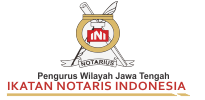The Effectiveness of Cyber Notary Development Using Barcodes on Notarial Deeds in Indonesia
Abstract
One of the problems that often occurs is the slow process of making notarial deeds which can hinder business and economic processes. This is caused by the large number of documents that must be signed and verified by the notary, as well as the signing process which is still done manually. Moreover, the use of digital information technology is increasingly penetrating various sectors, including in the process of making notarial deeds. However, the implementation of cyber notary in Indonesia still faces various challenges, especially related to effectiveness and security. Therefore, this study aims to develop cyber notary using barcodes on notarial deeds that can increase efficiency and security in making notarial deeds in Indonesia. The research method used is normative legal research with literature studies from secondary data where the data is obtained indirectly including primary legal materials. The results of the study show that the development of barcodes on notarial deeds can help increase the efficiency of the notarial deed making process by reducing the time and costs required. In addition, this model can also increase the security of data and information related to notarial deeds, thereby reducing the risk of manipulation or information leakage. The development of cyber notary, especially the use of barcodes on efficient and secure notarial deeds, is expected to make the notarial deed process in Indonesia more modern, transparent, and reliable. This research is expected to provide a positive contribution to the development of notarial technology in Indonesia and strengthen public trust in the legal process carried out in this digital era.
Keywords
Full Text:
PDFReferences
Journals:
Ahmadi Miru, Hendri, dan Hardian. (2015). Perancangan Sistem keamanan Cyber Notary Berbasis Web, Jurnal Sistem Informasi Bisnis, Vol. 5, No. 1,
Fajri, N. R. (2019). Implementasi Model Cyber Notary dalam Meningkatkan Transparansi Proses Pembuatan Akta Notaris. Jurnal Hukum dan Peradilan, Vol. 8, No.2,
Fitriana, Irsyad. (2016). Analisis Penerapan Sistem Elektronik dalam Pembuatan Akta Notaris. Jurnal Hukum dan Keadilan, Vol. 10, No. 2,
Izzy, Al. (2022). Sistem Hukum Modern Lawrance M. Friedman: Budaya Hukum Dan Perubahan Sosial Masyarakat Dari Industrial Ke Digital. Jurnal Sapientia et Virtus, Vol. 7. No.2,
Kusdianto, A. (2018). Tinjauan Terhadap Pengembangan Model Cyber Notary di Indonesia. Jurnal Yustisia, Vol. 12, No.2,
Pratama, R. A. (2019). Efisiensi dan Keamanan dalam Pembuatan Akta Notaris dengan Sistem Elektronik. Jurnal Hukum dan Pembangunan, Vol. 16, No. 1,
Putri, A. (2018). Pengaruh Penerapan Model Cyber Notary dalam Meningkatkan Efisiensi Proses Pembuatan Akta Notaris di Indonesia. Jurnal Hukum dan HAM, Vol. 6, No. 1,
Rahmawati, M. (2017). Pengembangan Model Cyber Notary Sebagai Alternatif dalam Efisiensi Proses Pembuatan Akta Notaris. Jurnal Hukum Bisnis, Vol. 3, No. 1,
Siregar, A. M. (2020). Peran Notaris dalam Pengembangan Model Cyber Notary di Indonesia. Jurnal Yudisial, Vol. 15, No.1,
Tan, D. (2021). Metode Penelitian Hukum: Mengupas Dan Mengulas Metodologi Dalam Menyelenggarakan Penelitian Hukum. NUSANTARA: Jurnal Ilmu Pengetahuan Sosial, Vol. 8, No.8,
Wijaya, T. (2017). Perlindungan Hukum Terhadap Akta Notaris Elektronik di Indonesia. Jurnal Hukum Bisnis, Vol. 12, No.2,
Books:
R.A. Emma Nurita. (2012). Cyber Notary Pemahaman Awal Dalam Konsep Pemikiran. Bandung: PT Refika Aditama,
Subekti dan Tjitrosudibio. (2009). Kitab Undang-Undang Hukum Perdata [Burgerlijk Wetboek]. Serang: Pradnya Paramita,
Sudikno Mertokusumo. (1999). Hukum Acara Perdata Indonesia. Jakarta: Liberty,
Regulation:
Law No. 2 of 2014 concerning Amendments to Law No. 30 of 2004 concerning Notary Positions,
Law No. 1 of 2024 concerning Second Amendment to Law No. 11 of 2008 concerning Electronic Information and Transactions,
Bank Indonesia Regulation Number 20/11/PBI/2018 concerning Payment Systems,
Minister of Law and Human Rights Regulation Number 1 of 2017 concerning Procedures for Making Electronic Notarial Deeds,
Minister of Law and Human Rights Regulation Number 9 of 2016 concerning Electronic-Based Public Services,
Regulation of the Minister of Law and Human Rights of the Republic of Indonesia Number 12 of 2017 concerning Procedures for Registration of Electronic Notarial Deeds,
Information Network and Electronic Transaction Authority Regulations (Government Regulation Number 82 of 2012),
Financial Services Authority Regulation Number 77/POJK.01/2016 concerning Consumer Protection in the Financial Services Sector.
DOI: http://dx.doi.org/10.30659/akta.v11i3.39749
Refbacks
- There are currently no refbacks.
Copyright (c) 2024 JURNAL AKTA

This work is licensed under a Creative Commons Attribution-NonCommercial-NoDerivatives 4.0 International License.
Jurnal Akta has been indexed by:
Editorial Office: Jurnal Akta Room 2nd Floor Imam As Syafei Building Faculty of Law Universitas Islam Sultan Agung. Jln. Kaligawe KM. 4, Semarang City, Central Java, Indonesia. Phone +62 24 6583584 Fax +62 24 6582455
Email: jurnalakta@unissula.ac.id

![download[4]](https://jurnal.stiki-indonesia.ac.id/public/site/images/adminjurnal/template_jurnal_tosca1.png)














